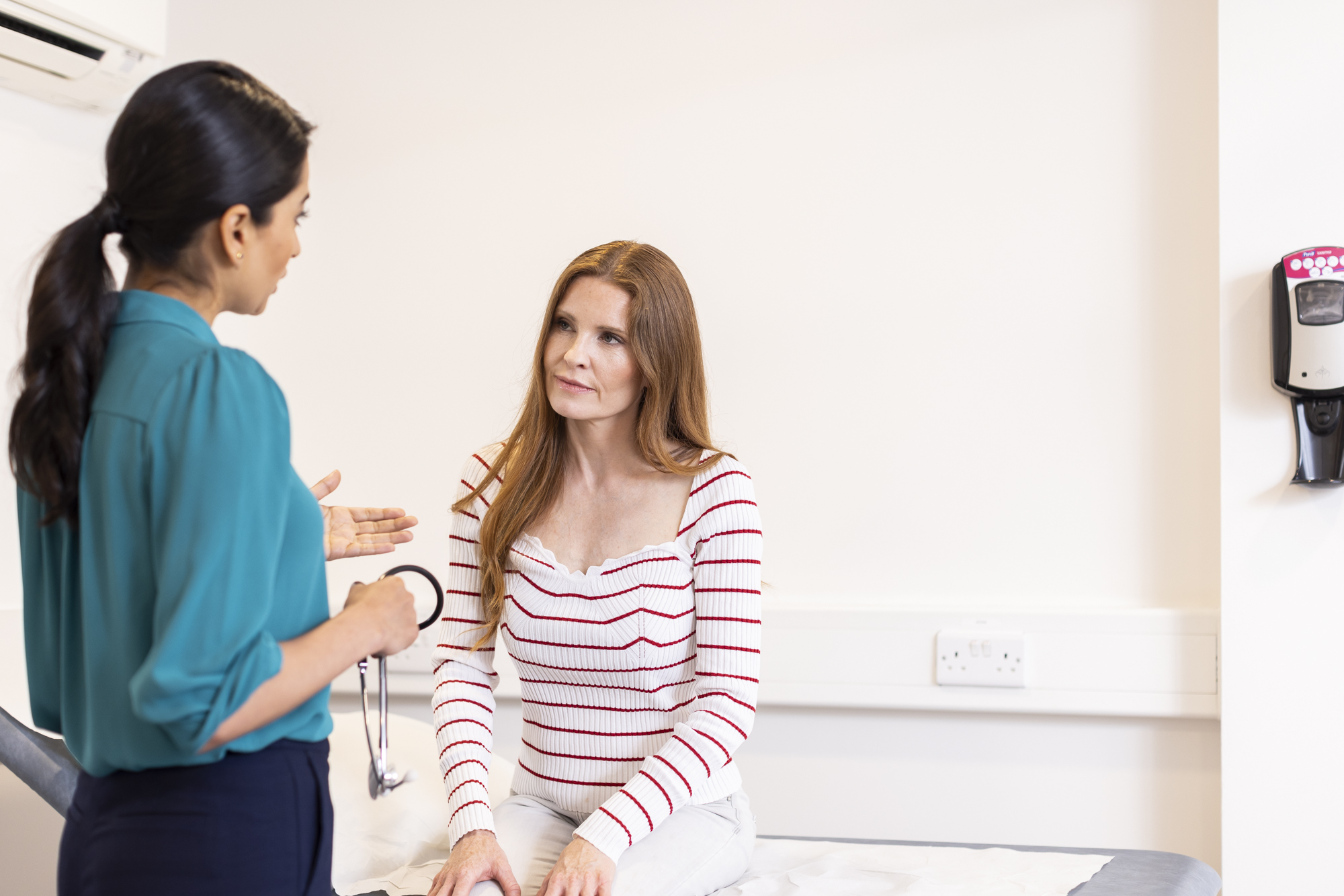What To Expect on Your First Gynaecologist Visit
Read time: 5 mins

Article Summery: What happens at your first visit to the gynaecologist?
At your first gynaecology visit, you’ll share your medical and menstrual history, then have a private consultation to discuss concerns. Depending on your needs, the doctor may carry out a pelvic exam, Pap smear, STI screening, breast exam, or blood tests. The visit ends with results discussion or follow-up plans, all handled with privacy and sensitivity.
Whether you’re booking a first visit to the gynaecologist out of curiosity, concern, or routine care, it’s normal to feel a bit unsure about what lies ahead. This article walks you through the process step-by-step, because being informed can help you feel more at ease! We spoke to Miss Fani Kokka, Gynaecologist/Subspecialist in Gynaecological Oncology, to help create this article which walks you through the process step-by-step, because being informed can help you feel more at ease!
Step-by-Step: Your First Appointment with a Gynaecologist
From the moment you walk in, the focus is on your comfort and your women’s health. Here’s how a typical first visit may go:
- A warm welcome and form-filling
You’ll be asked about your medical history, including your menstrual cycle, any surgical history, and any medications you’re taking. If you’re sexually active, you might be asked a few extra questions about your sexual health and birth control (if applicable).
- Private consultation
You’ll chat with the doctor in a private space. This is your opportunity to bring up any questions or concerns, whether it’s about irregular periods, unusual vaginal discharge, pain, or anything else to do with your reproductive health.
- Examinations and tests
Depending on your age, symptoms, or reason for attending, your consultant may recommend a general physical exam, pelvic exam, or breast exam. These are common parts of looking after the female reproductive system and are done with sensitivity and privacy.
What Tests Might Be Carried Out?
The doctor may recommend certain tests depending on your personal health needs. These could include:
- Pelvic exam: This checks your uterus, ovaries, and fallopian tubes. It may include a bimanual exam using gloved, lubricated fingers to gently feel the internal organs.
- Pap smear (or pap test)/HPV test: This checks for changes in cervical cells that might lead to cancer. Abnormal screening results requiring colposcopy examination.
- Sexually transmitted infection screening: If you’re sexually active, you may be offered tests for sexually transmitted infections.
- Breast exam: Your consultant may check for any lumps or signs of diseases in the breasts.
- Blood tests: These may be offered depending on your history or symptoms, especially for hormone levels or as part of prenatal tests.
- Ultrasound or imaging: If there’s anything that needs a closer look, such as unexplained bleeding or pain, you may be referred for imaging.
Why See a Gynaecologist in the First Place?
There are many reasons someone might make that initial visit to a gynaecologist. Some of the most common include:
- Checking in on your reproductive health
- Experiencing pain, irregular periods, unusual vaginal discharge, abdominal bloating, changes in bowel habits or urinary symptoms (frequency, urgency, incontinence)
- Discussing birth control options
- Planning for pregnancy or having fertility concerns
- Investigating a family member history of gynaecological conditions
- Getting routine preventive care
When Should You Book That First Gynaecologist Appointment?
There’s no set age, but many book their first visit in their late teens or early twenties, especially once they become sexually active, or if they have any ongoing issues like pain, bleeding, or persistent discomfort. If you’re unsure, a good rule is: if something’s affecting your day-to-day life, it’s worth checking in.
What Happens After Your Visit?
You’ll be given time to get dressed, then talk through any findings with your doctor. If you’ve had tests, you’ll be told how and when the results will come through. If treatment or follow-up is needed, your consultation may include a plan or a future appointment.
Most importantly, your first appointment is about starting an ongoing conversation about your health and giving you space to ask anything, from your last period to what’s “normal” for your reproductive system.
FAQs About Seeing a Gynaecologist
- How should I prepare for my first gynaecology appointment?
Wear comfortable clothing, bring a list of any medications, and jot down any questions you might want to ask. It’s helpful to know when your last period started and ended. - Will it be painful?
The exams should not be painful, though you may feel some pressure. Let your doctor know if anything feels uncomfortable or causes pain—they’ll work with you to make the experience as calm as possible. - Can I bring someone with me?
Yes. Many people feel more at ease bringing a family member or friend.
If you’re concerned with your gynaecological health, you can make an appointment with Miss Kokka or another one of our Gynaecologists at a time that suits you by calling our contact centre on 020 7806 4060
Posted on: 4 June 2025
Last updated: 8 September 2025
Tags:
Content provided by Miss Fani Kokka - FRCOG
